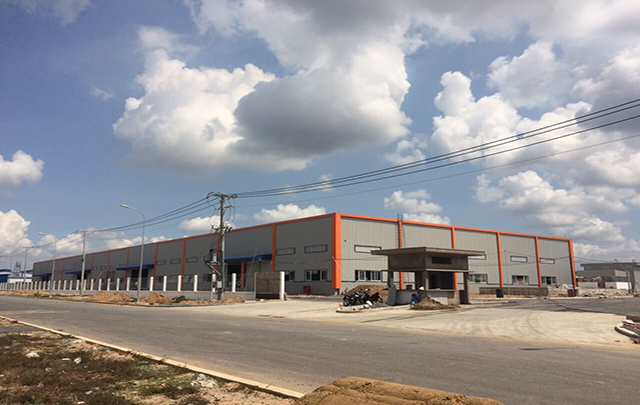Content Summary
In recent years, the flow of foreign workers into Vietnam has continuously increased sharply. Foreign workers have an important role in enterprise development in Vietnam. In that context, employers need to pay attention to the issues when using foreign resources effectively to avoid unnecessary legal risks.
FIRSTLY, THE WORK PERMIT OF FOREIGN WORKERS.
According to the current Vietnamese law, foreign workers come to work in Vietnam following one of two cases:
- Not subject to work permit issuance;
- Must have a work permit
In both cases, the enterprise employing foreign workers must carry out the procedures for applying for a work permit or certifying that the foreign worker is not eligible for a work permit at the Department of Labor, War- invalid and social Affairs.
In case the foreign workers are not subject to work permits, including:
- Being the owner or capital contributor of a limited liability company with a capital contribution value of 3 billion VND or more.
- Being the Chairman of the Board of Directors or a member of the Board of Directors of a joint-stock company with a capital contribution value of 3 billion VND or more.
- Being on mission within enterprises within 11 service industries in Vietnam’s service commitment schedule with the World Trade Organization, including business, information, construction, distribution, education, environment schools, finance, health, tourism, culture, entertainment, and transportation.
- Enter Vietnam to provide professional and technical consulting services. To perform other tasks for research, development, appraisal, monitoring and evaluation, program management and implementation, projects using official development assistance (ODA) according to regulations or agreements in international treaties on ODA signed between Vietnamese and foreign competent agencies.
- Be licensed by the Ministry of Foreign Affairs to operate information and press in Vietnam following the law.
- Being sent to Vietnam by a competent foreign agency or organization to teach and conduct research at an international school under the management of a foreign diplomatic mission or the United Nations; establishments and organizations established under agreements that Vietnam has signed or joined.
- Volunteers specified in Clause 2, Article 3 of Decree 152/2020/ND-CP.
- Enter Vietnam to work as a manager, executive director, expert or technical worker for less than 30 days and no more than three times a year.
- Enter Vietnam to implement international agreements signed by central and provincial agencies and organizations following the law.
- Pupils and students studying at overseas schools and training institutions have agreements on internships in agencies, organizations, and enterprises in Vietnam; Trainees on Vietnamese ships.
- Relatives members of foreign representative missions in Vietnam specified at Point l, Clause 1, Article 2 of Decree 152/2020/ND-CP.
- To be the head of a representative office or projector to take responsibility for non-governmental organizations in Vietnam.
- Enter Vietnam with a term of fewer than three months to make a service marketing.
- Enter Vietnam for less than three months to handle problems, technical situations, complex technologies affecting production and business that Vietnamese experts and experts in Vietnam need to do. Foreigners currently in Vietnam cannot handle it.
- Being a foreign lawyer granted a license to practice law in Vietnam following the Lawyers’ Law.
- The case according to the provisions of international treaties to which the Socialist Republic of Vietnam is a contracting party.
- The foreigners marry Vietnamese and live in Vietnamese territory.
In case the employee must have a work permit
In case the employee must have a work permit, the enterprise should pay attention to applying for a work permit at the Ministry of Labor – War Invalids and Social Affairs or the Department of Labor – War Invalids and Social Affairs at least 15 days in advance from the date the foreign worker start working in Vietnam
SECONDLY, PERSONAL INCOME TAX (PIT):
Foreign employees working in Vietnam must pay personal income tax. PIT for foreign workers is applied to wages and salaries. There are two cases: resident employees and non-resident employees. You can find out more here:
How to identify individuals residing and not residing in Vietnam
– A foreign individual residing in Vietnam satisfy the following conditions:
- Being present in Vietnam for 183 days or more in a calendar year or 12 consecutive months from the first day of presence in Vietnam, in which the arrival and departure dates are counted as one (01) day. The arrival and departure dates are stamped on the passport (or travel document). In case of entry and exit on the same day, counted as one day of residence.
- Having a regular place of residence in Vietnam in one of the following two cases:
-
- Have a regular place of residence stated in the Permanent Residence Card issued by a competent agency of the Ministry of Public Security.
- Have a rented house to live in Vietnam, according to the provisions of the law on housing. And the term of the lease contract from 183 days or more in the tax year.
– A foreign individual not residing in Vietnam does not satisfy the above conditions.
Expenses related to wages and salaries are deducted from the enterprise’s taxable income.
The house rental expenses for foreign workers in Viet Nam: If the enterprise must pay the house payment expenses to the employees, the enterprise should note that there must be sufficient invoices and proof. This expense will be counted as a deductible expense when determining the enterprise’s taxable income.
The expenses tuition fees for children of foreign workers in Vietnam: The enterprise’s labor contract clearly states this expenditure ( this payment is not contrary to the provisions of the law). The enterprises need to have sufficient invoices and documents as prescribed by law.
THIRDLY, LABOR CONTRACTS WITH FOREIGNERS
After granting a foreign worker’s work permit, the enterprise and the foreign worker must sign a written labor contract under Vietnamese labor law before the expected date of working.
The labor contract content depends on the needs of Vietnamese enterprises to use foreign workers and the agreement of the two parties.
FOURTHLY, SOCIAL INSURANCE PAYMENT
Employees who are foreign citizens working in Vietnam with a work permit or a practicing certificate issued by a competent Vietnamese agency are entitled to participate in compulsory social insurance according to regulations of the Government.
Regarding the payment level, enterprises note the following:
- Employee’s contribution rate: From January 1, 2022, employees participating in compulsory social insurance are responsible for paying 8% of their monthly salary to the retirement and survivorship fund.
- The employer’s contribution rate: From January 1, 2022, the employer shall make monthly contributions on the employee’s monthly salary on which social insurance premiums as follows: Contribution of 3% to the sickness and maternity fund; 0.5% to the labor accident and occupational disease fund and 14% to the retirement and survivorship fund.
With extensive experience in consulting for hundreds of domestic and foreign companies, AZLAW is committed to providing customers with professional and in-depth legal consulting services in all fields.










